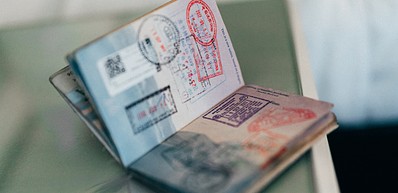

Our travel guides are free to read and explore online. If you want to get your own copy, the full travel guide for this destination is available to you offline* to bring along anywhere or print for your trip.
*this will be downloaded as a PDF.Price
€4,95
Berlin Brandenburg Airport Willy Brandt (BER)
The guide was updated:Useful Information
- More Info: The airport is located in the C zone when it comes to public transport. You will either need to have an ABC zone ticket or buy a C zone extension
- Website: ber.berlin-airport.de/en.html
- Phone: +49 30 6091 6091 0
Digital Travel Guide Download
Our travel guides are free to read and explore online. If you want to get your own copy, the full travel guide for this destination is available to you offline* to bring along anywhere or print for your trip.
*this will be downloaded as a PDF.Price
€4,95


Berlin Brandenburg Airport Willy Brandt (BER)

Frequently Asked Questions About Berlin (FAQs)

Best Time to Visit

Public Transport

Taxi

Postal Service

Dentists

Pharmacy

Telephone

Electricity


